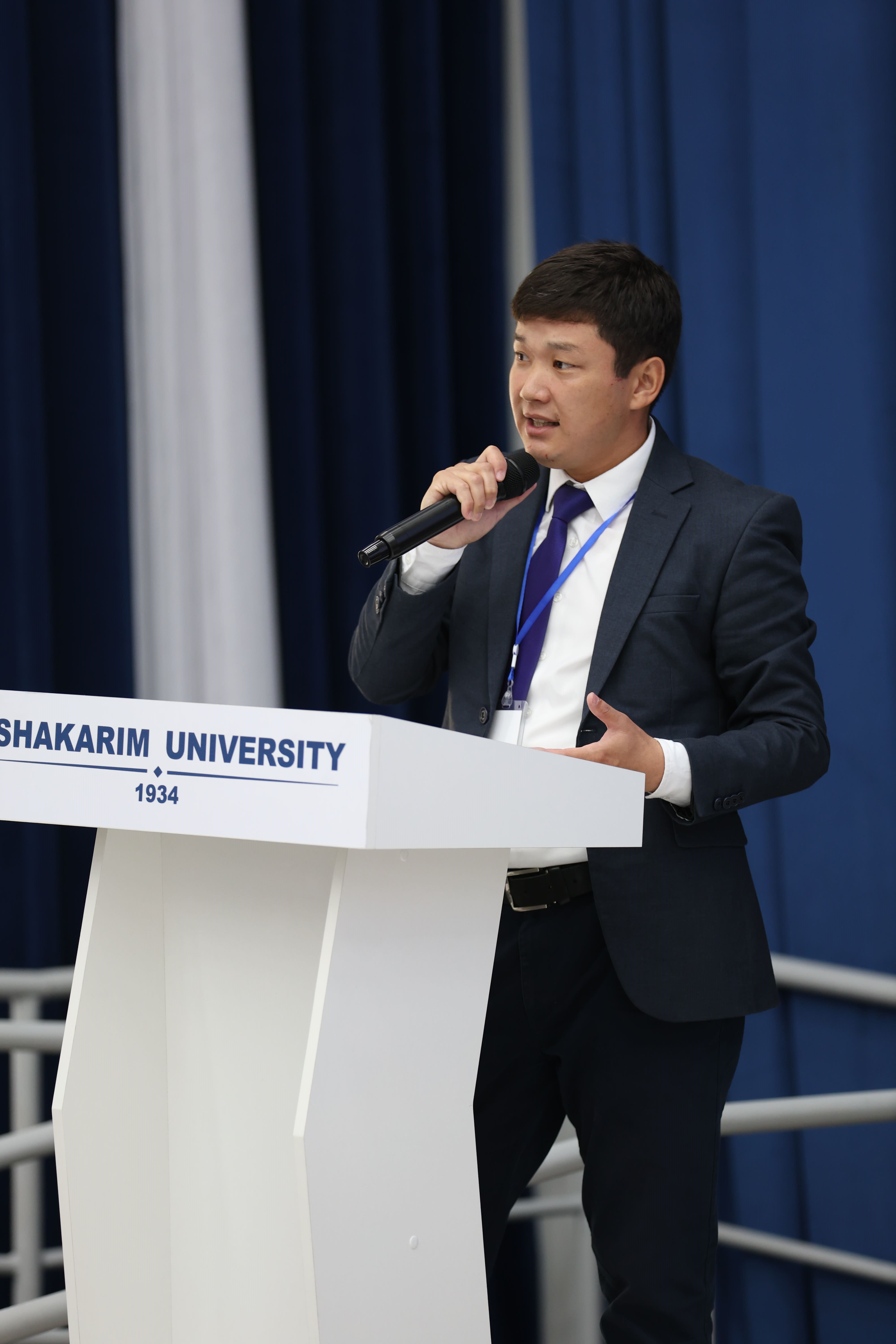Azimkhan Isabek, Abaevist, Auezov Scholar at the South Kazakhstan Research University named after M. Auezov: Through the restoration of biographies and the fate of Abai’s family, we regain not only history but also a foundation for dialogue with the futur

At the Republican Youth Forum "Abai's Concept of the Perfect Human: National Values and Contemporary Perspectives," held on May 23–24 at Shakarim University, special attention was drawn to the meaningful and profound presentation by Azimkhan Isabek — an Abaevist, Auezov scholar, and press secretary of the South Kazakhstan Research University named after M. Auezov.
The topic of his speech, "Mukhtar Auezov and Contemporary Issues in Abai Studies," served as an important semantic bridge between classical humanist heritage and its modern academic interpretation.
The speaker emphasized:
"Auezov is not merely an interpreter of Abai, but a figure who revealed Abai to us as the code of an era, as a universal moral formula. Today, it is important not just to study Auezov, but to continue his line of research under new challenges and with new knowledge."
A central element of his presentation was the unveiling of documentary-confirmed information regarding the burial sites of Abai's descendants in Shymkent. Thanks to a gravestone installed by Mäken Turagulkyzy, the burial places of Abai's sons Turagul and Mekail, as well as their wives Kamaliya and Damezhan, were accurately identified. These findings represent a significant contribution to the reconstruction of the ancestral memory of the great poet.
"Historical memory is not an abstraction. It begins with specific names, places, and faces. Through the restoration of the biographies and fate of Abai's family, we reclaim not only our history but also the foundation for dialogue with the future," Isabek noted.
Also presented was the two-volume work "Auezov and Abai," published in 2023 by the M. Auezov University as a continuation of major academic work on the joint study of two geniuses of Kazakh thought.
Azimkhan Isabek’s presentation brought historical depth and academic precision to the forum, blending spirituality, archival evidence, and humanitarian research methodology. For many students and participants, it became an example of how the history of a family, region, or people can be woven into the strategic fabric of national identity.
The forum, which united representatives from more than 70 universities, became a space where the inseparable connection between the past, present, and future took on a living form — through scholarly reconstruction, philosophical reflection, and cultural continuity.
